See Avant-Garde Soviet Bus Shelters Before They Disappear
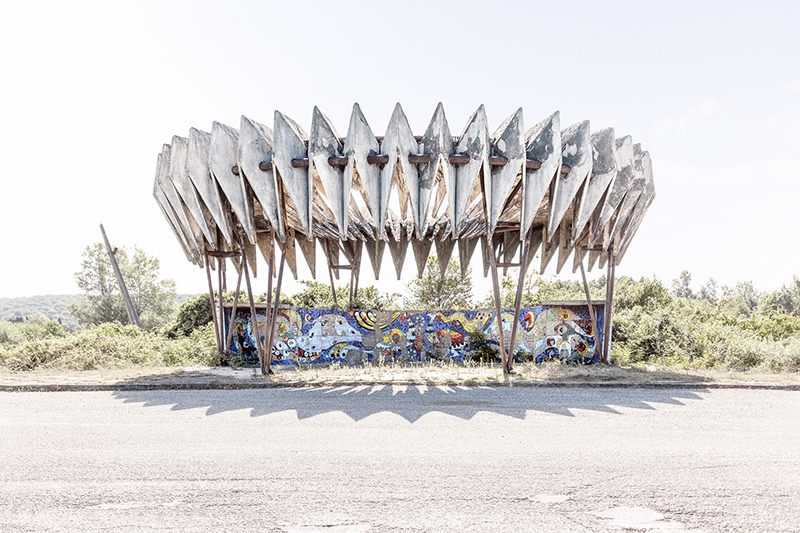 Disputed region of Abkhazia Pitsunda. (All photos: Christopher Herwig)
Disputed region of Abkhazia Pitsunda. (All photos: Christopher Herwig)
When photographer Christopher Herwig challenged himself to shoot at least one “interesting” image per hour hour during a cycling trip from London to St Petersburg in 2002, he didn’t envision it leading to a 12-year project. But, after realizing that many of the bus stops he had been photographing were uniquely designed, his photographic experiment turned into a marathon project.
Herwig’s ambitious bus stop series spanned 13 former Soviet states: Kazakhstan, Turkmenistan, Uzbekistan, Kyrgyzstan, Tajikistan, Ukraine, Moldova, Armenia, Georgia, Lithuania, Latvia, Belarus, Estonia, and the disputed region of Abkhazia. Along the route he encountered bus stops that, although created under the same all-encompassing system of government, varied wildly in their style and aesthetic.
These distinctive shelters are brought together for the first time in Herwig’s new book, Soviet Bus Stops. We chatted with him about his trip across the former USSR, and finding beauty in unexpected places.
Were you ever concerned about safety or access?
It was pretty safe for the most part, and everyone was helpful and nice. Many of the places I had to pretend to travel as a tourist to get the visa–I was often worried that this would get me into trouble. I did have an unfortunate incident in the area of Abkhazia where the taxi driver accused me of being a Georgian spy and demanded large sums of cash not to turn me over to the militia. He indicated I would face the firing squad. He got rather angry but in the end I managed to get back across the border after only losing a couple of hundred dollars to him. I hid my memory card in my underwear just in case I lost my camera.
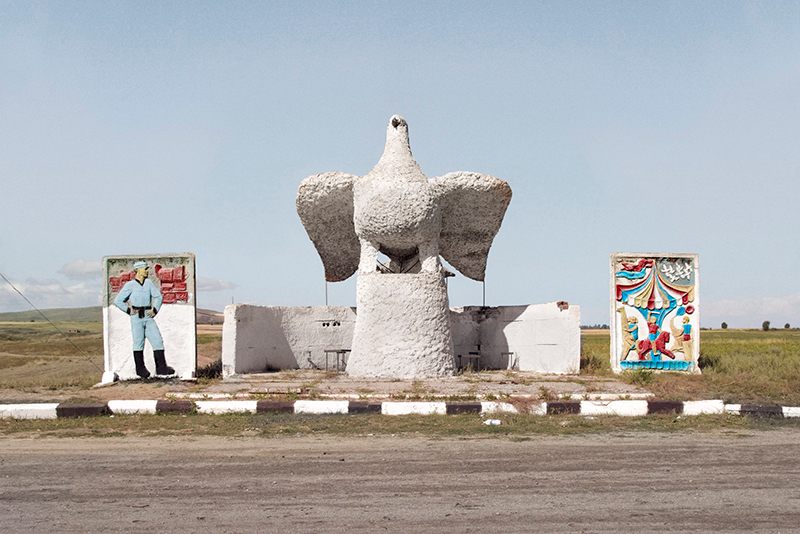 Karakol, Kyrgyzstan.
Karakol, Kyrgyzstan.
How did you go about planning this project, and traveling across such large distances?
The first half of the project I just came across them while traveling, but later I tried to do homework beforehand, by searching online and asking around. I even came across competitor bus stop hunters who guarded their locations dearly and wouldn’t share any details. When possible, I scanned over thousands of kilometers of road in the Baltic countries on Google Earth beforehand. Otherwise I would go to bus stations and taxi stands and ask around locally. In Belarus I had the privilege of meeting up with one of the major architects, and he helped direct me.
 Kootsi, Estonia.
Kootsi, Estonia.
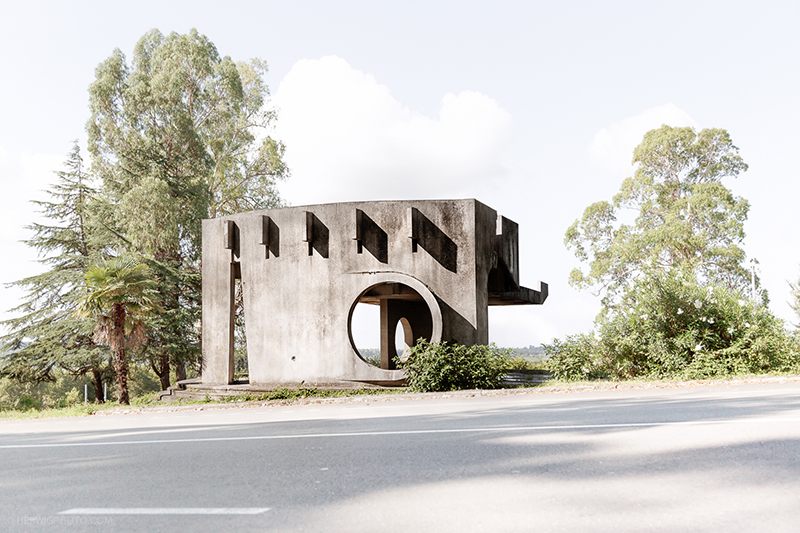
Disputed region of Abkhazia Pitsunda.
Was there one country that you felt had the most interesting bus stops?
Some of my favorites are designed by Georgian artist Zurab Tsereteli, in what is now the disputed region of Abkhazia. He describes the projects as having no restrictions in term of funding and design and it shows. Asked why some have no roof or little function as a bus stop, he just says he is an artist and all that is important is that it looks good and brings pleasure. The bus stops date to the late ’60s and ’70s. They are crazy Gaudi inspired creations and look like waves, alien space ships, octopuses and whales.
 Machuhi, Ukraine.
Machuhi, Ukraine.
Do you know whether any of these are going to be replaced?
It varies from region to region. Most bus stops are in pretty rough shape and are disappearing or long gone. Lithuania and Estonia are pretty good and maintaining them, but sometimes change the design to much and they lose their charm. In Armenia many of the bus stops survive but only because they were made to with heavy concrete. Many specific bus stops I was looking for in Belarus were sadly already torn down and replaced with standard designs, while in places like Kazakhstan and Ukraine one could see that locals were repainting and maintaining the bus stops.
 Falesti, Moldova.
Falesti, Moldova.
 Kaunas, Lithuania.
Kaunas, Lithuania.
What prompted you to start shooting Soviet bus stops?
I was riding my bike from London to St Petersburg in 2002, and had made a challenge for myself that I had to take an interesting photograph at least one every hour while I was on my bike. I did this so I would force myself to photograph things I normally may have overlooked as not exotic or exciting enough. I had photographed some bus stops through Western Europe but it wasn’t till I entered Lithuania that I really started to get amazed by the variety and creativity of the shelters. The photos from the trip were shown at Galleri Kontrast in Stockholm the following year, with one wall dedicated to bus stops.
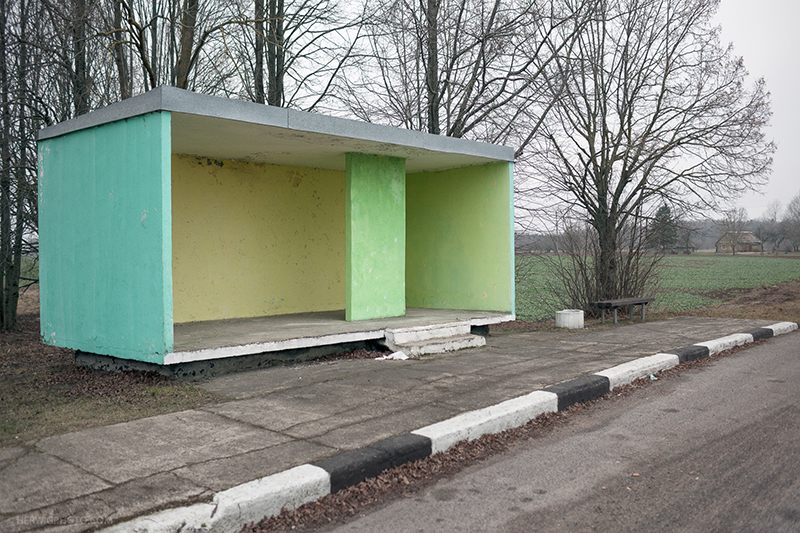 Rokiskis, Lithuania.
Rokiskis, Lithuania.
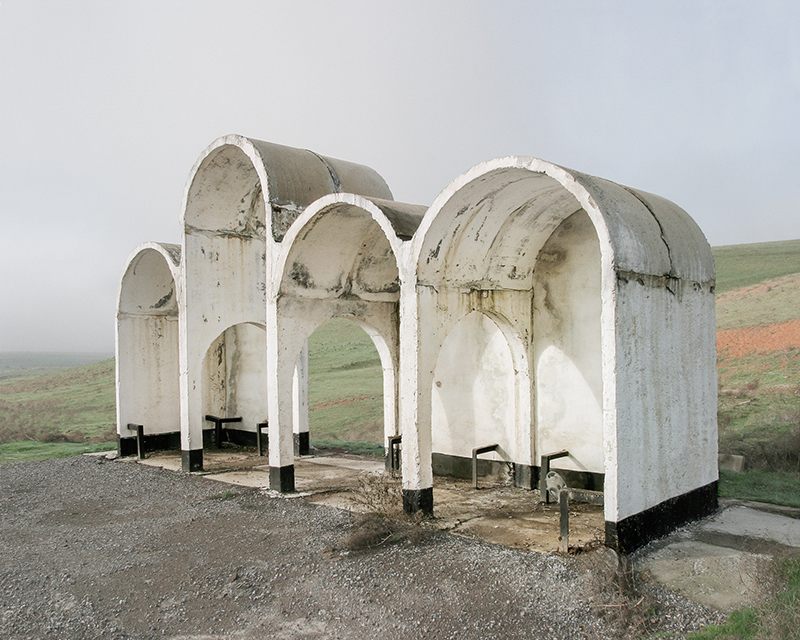 Shymkent, Kazakhstan.
Shymkent, Kazakhstan.
The aesthetics of these bus stops are incredible, especially considering bus stops are generally regarded as so mundane. What do they say about Soviet-era design?
For me it’s intriguing to think this was going on during the Soviet Union, a time commonly known for conformity and restricting individual creative freedom. These bus stops are less about the Soviet Union as a whole and more about the local regions and individual artists. The bus stops provided an outlet for creative design. For me this has been a unique glimpse into the imagination of many people who were often creatively oppressed. It gives us a chance to look at a place and time in history–not as a state as a whole, but at the people who lived during that time.
 Charyn, Kazakhstan.
Charyn, Kazakhstan.
 Aralsk, Kazakhstan.
Aralsk, Kazakhstan.
Where did you base yourself while you were working on the project?
We moved to Kazakhstan, where my wife and I lived for three years while I explored the five ‘stans of Central Asia. The series continued to grow as I passed by more bus stops, and continued with different trips until April 2015, when I travelled to Belarus. It was the only former Soviet state I had not been to yet. There are 13 countries included in this book plus the disputed region of Abkhazia.
 Niitsiku, Estonia.
Niitsiku, Estonia.
What are your three favorite bus stops, and can you tell us a little bit about each one?
1) Below is an early favorite of mine and the cover of the book. It was taken the middle of empty fields on the road near Taraz, Kazakhstan. Whenever I see it I think its going to bite me and I remember the two-week-long fantastic road trip exploring the far corners of Kazakhstan.
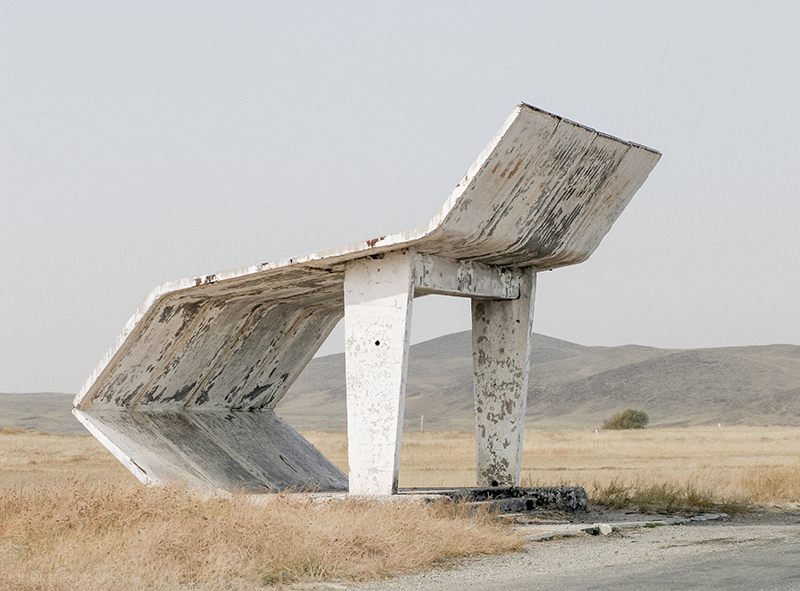 Taraz, Kazakhstan.
Taraz, Kazakhstan.
2) Near the town of Saratak in northwest Armenia, this 10 kilometer section of road surrounded by farmland had some of my favorite concrete creations every couple kilometers with no real reason for bus stops in sight.
 Saratak, Armenia.
Saratak, Armenia.
3) Georgian artist Zurab Tsereteli created this wave overlooking the Black Sea in the disputed region of Abkhazia. It’s located near the town of Gagra on the road towards Sochi.
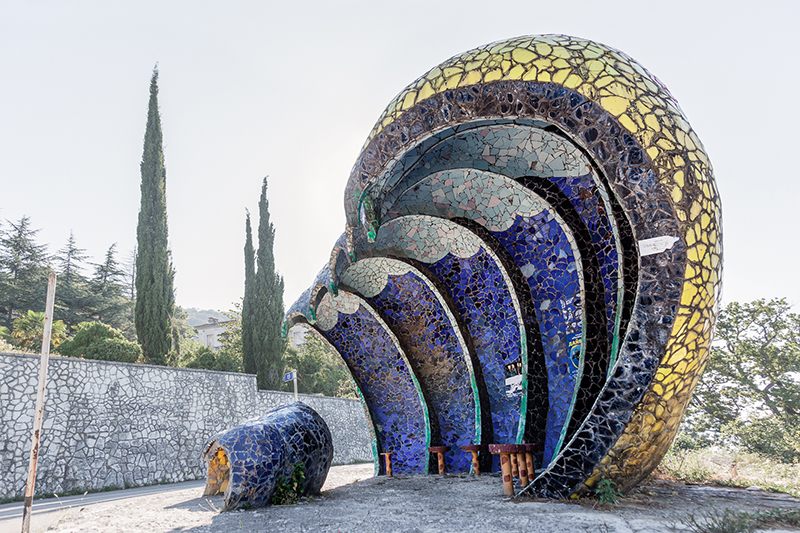 Bus stop in Gagra, part of the disputed region of Abkhazia.
Bus stop in Gagra, part of the disputed region of Abkhazia.
 Slabodka, Belarus.
Slabodka, Belarus.
 Astrašycki Haradok, Belarus.
Astrašycki Haradok, Belarus.
 Saratak, Armenia.
Saratak, Armenia.
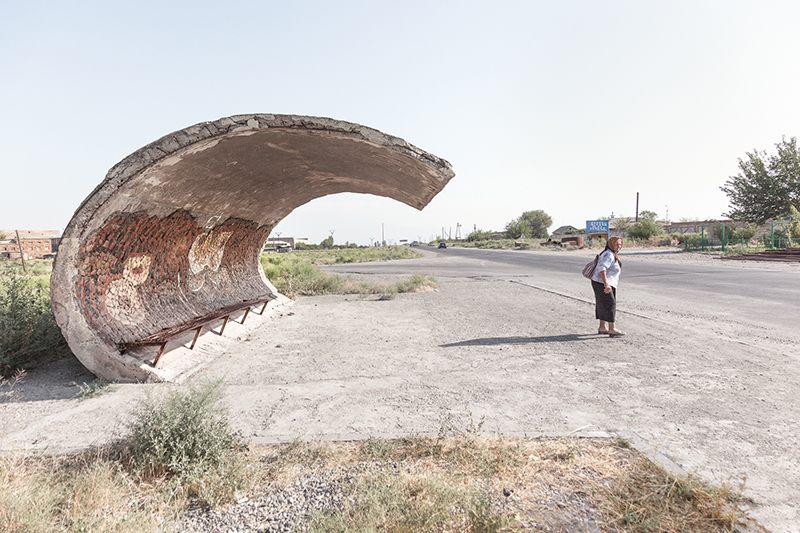 Echmidazin, Armenia.
Echmidazin, Armenia.
 Yerevan, Armenia.
Yerevan, Armenia.
 Shkloŭ, Belarus.
Shkloŭ, Belarus.
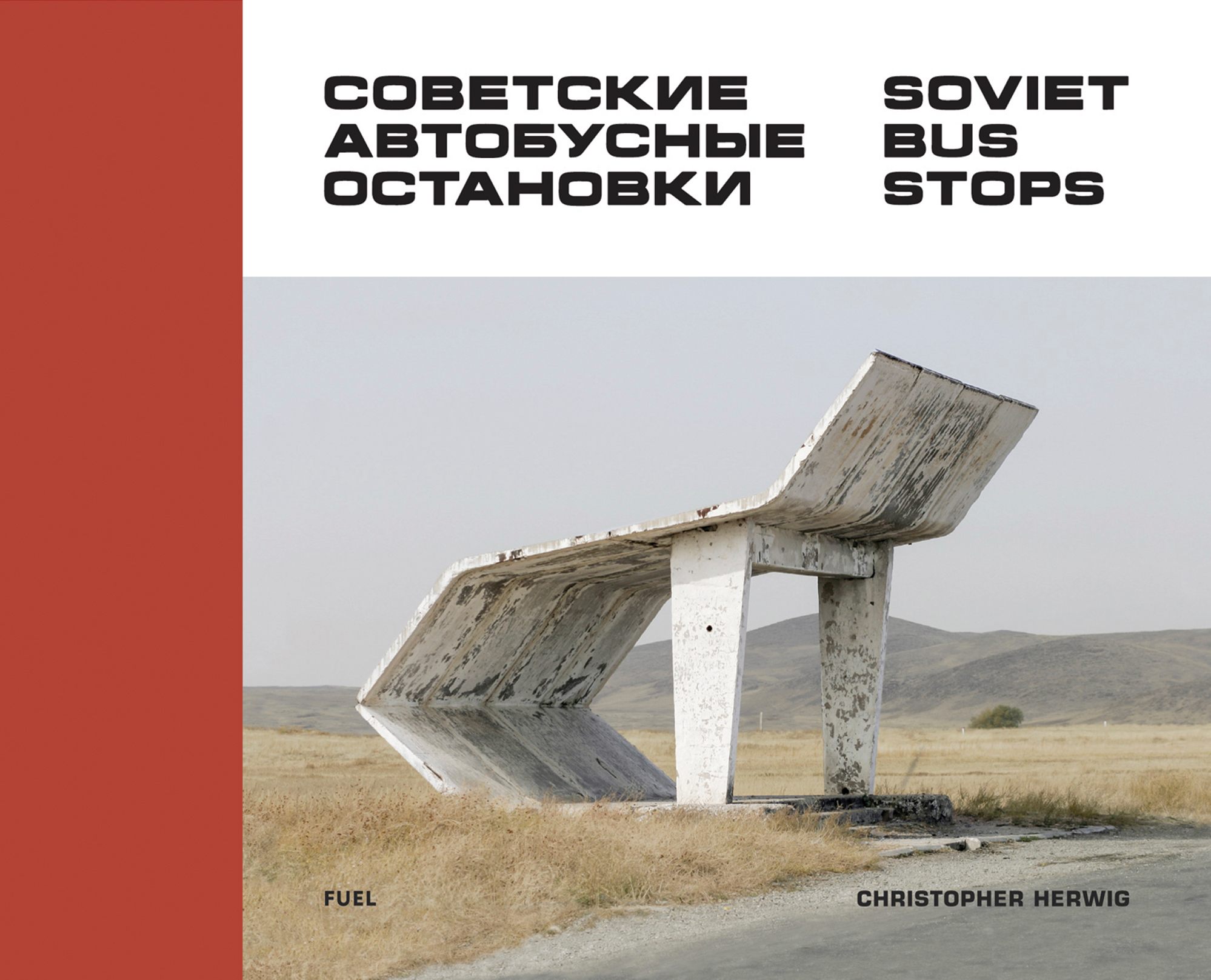 Christopher Herwig’s book Soviet Bus Stops.
Christopher Herwig’s book Soviet Bus Stops.



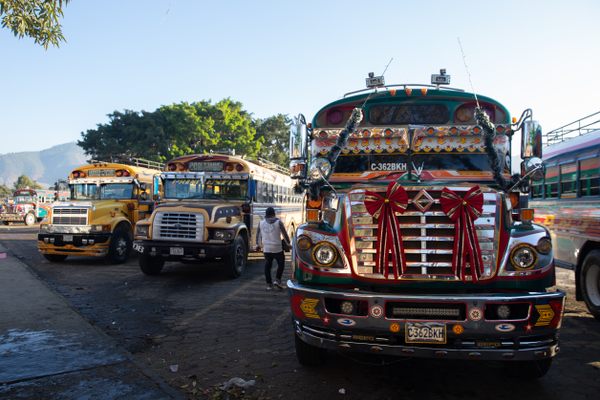







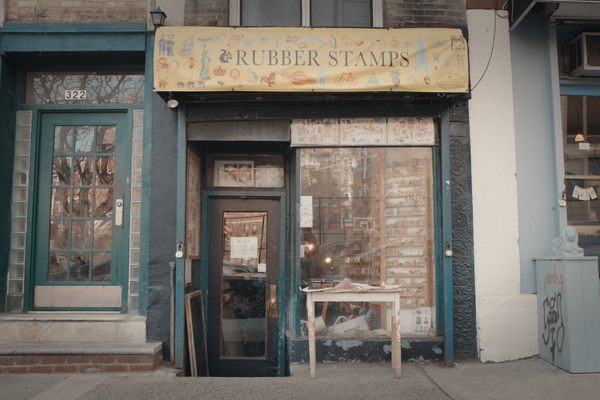
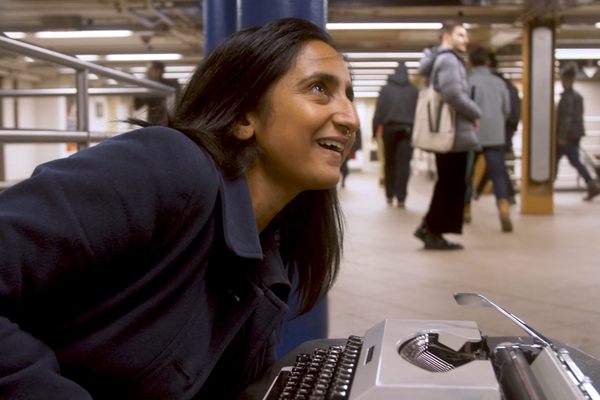
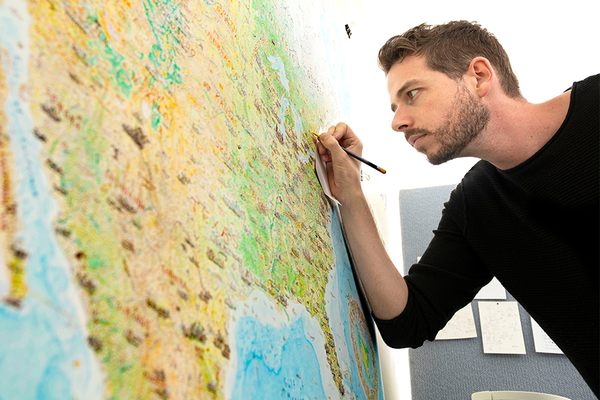

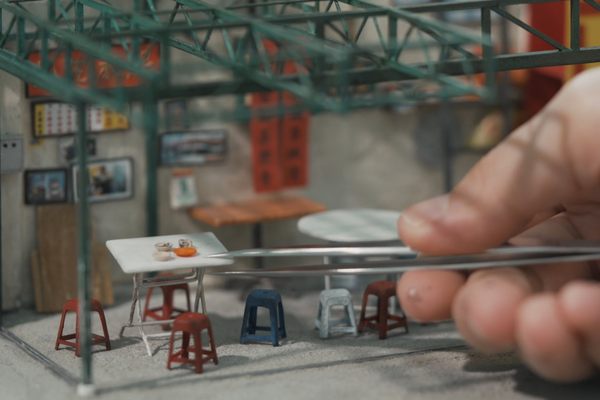



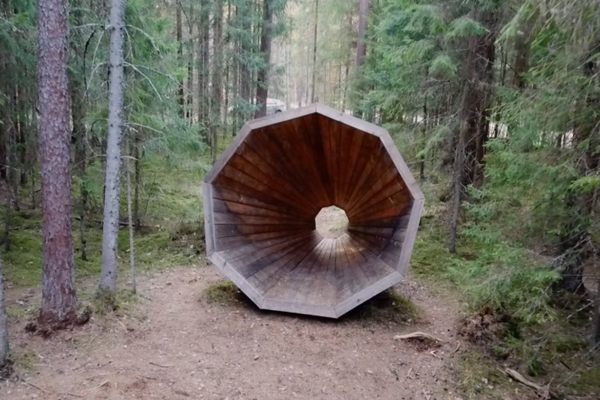
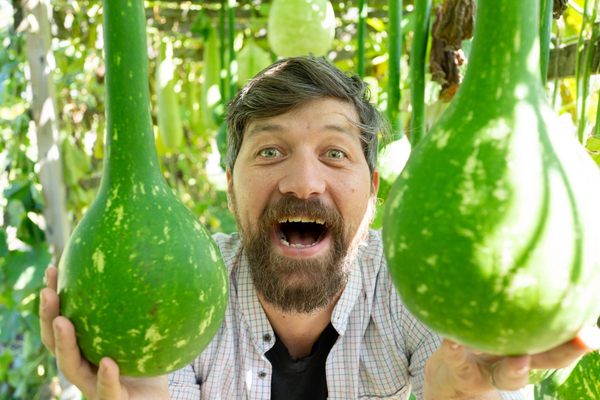

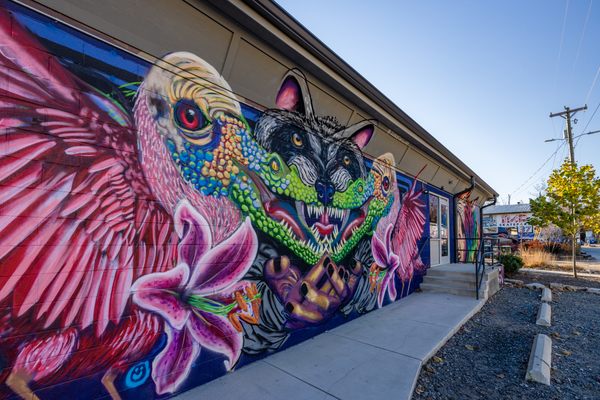
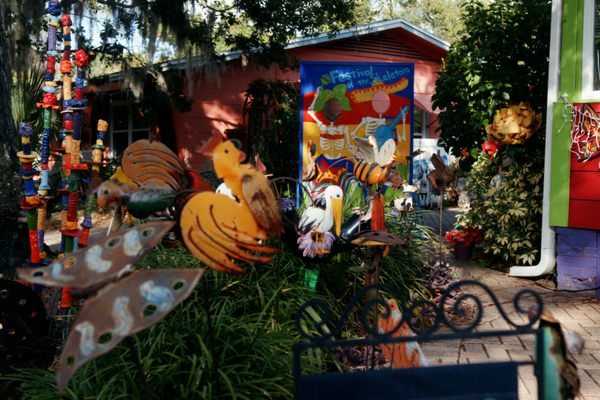
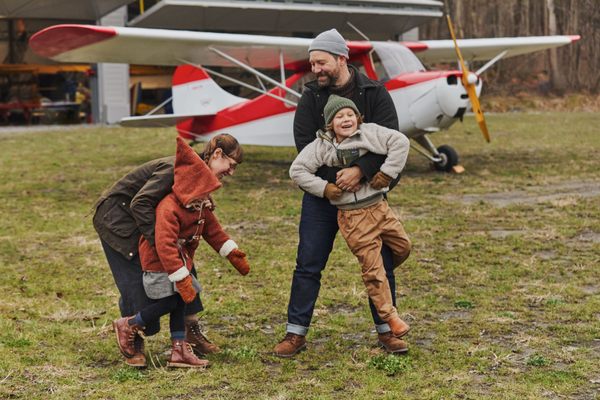


Follow us on Twitter to get the latest on the world's hidden wonders.
Like us on Facebook to get the latest on the world's hidden wonders.
Follow us on Twitter Like us on Facebook